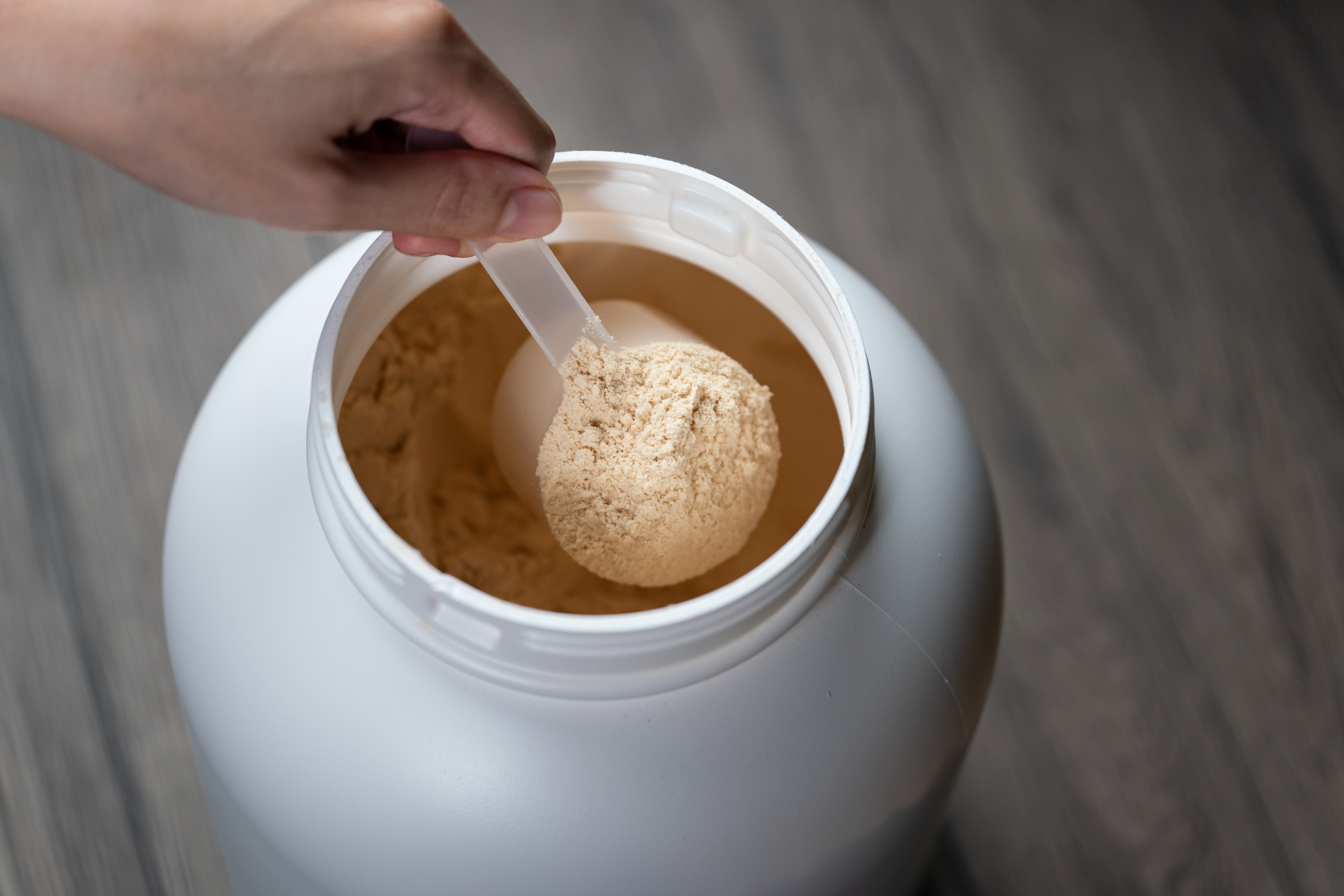Protein is an essential nutrient required for maintaining adequate body structure and function. Out of the 20 amino acids that make up a protein, only 11 are able to be made in the body. Therefore our bodies need to consume the remaining 9 amino acids through dietary intake from food or supplements such as protein powder.
When getting protein through the diet, it is advised for everyone to aim to get all their nutrients from natural, whole food sources first. With that being said, it is recognized that this may not be achievable for everybody. Some people may not be able to obtain or consume everything they need from whole food sources. This is when supplements come in handy.
Although protein powder in moderation may offer great health benefits for some, the overuse of unregulated protein powders can have a negative impact on the body and inhibit health goals. (1) Therefore a doctor or registered dietitian should also be consulted before adding a supplement to your diet. Your doctor or dietitian can recommend products that have been third-party tested.
Third-party testing ensures that the supplement has been checked to confirm what is on the label is actually in the product and that nothing is hidden in the product. Third-party testing is necessary because the supplement industry does not have any regulations, therefore companies can put out supplements claiming to contain certain nutrients without a guarantee that they actually do.
PROS:
- Convenient – Protein powder provides a quick and easy way to consume enough protein.
- Aids in weight management – Low bulk with high nutrient content. Promotes satiety and helps you feel fuller for longer. (1)
- Promotes muscle growth – The isolated protein is rapidly absorbed and available to be used for building muscle. (1)
CONS:
- Digestive Issues – Whether it is the high protein content, dairy-associated irritation, or effects of sugar alcohols, protein powder may cause some gastrointestinal discomfort.
- Risk of undesirable additives and contaminants – Protein powder is not regulated by the FDA so in order to find a clean product, look for the National Sanitation Foundation (NSF) certification label. NSF tests supplements to ensure that they meet safety and quality standards.
- Price – When it comes to the cost of protein powders, it seems that the higher the quality, the higher the price. Although there are safe and affordable options available, this still might not always be considered the most cost-effective solution.
Choosing a Protein Powder
Contrary to popular belief, protein powder is not just for bodybuilders. It can also be a beneficial tool for those unable to reach their nutritional needs through a well-balanced diet. (1) But with countless options on the market, how do you know which one is best?
First, protein powder is not one size fits all. It’s all about finding the right kind for you. Sometimes it takes sifting through a few different types and brands before finding the one that agrees best with your body. So before buying in bulk, be sure to do some research. Take into account your dietary and taste preferences, consider the quality of the product, and read that label! Here are some things to look for and consider when picking a protein powder.
TYPE:
- Animal-based (whey, casein) – Animal protein sources contain all essential amino acids as the powder is created from milk and turned into an isolated form that is more easily digested and quickly absorbed.
- Plant-based (pea, soy, brown rice) – Plant protein sources may not contain all the essential amino acids but it does provide a great alternative to animal-based powders for vegan and vegetarian diets as well as for those with a milk or lactose allergy.
INGREDIENTS:
A rule of thumb is the fewer ingredients the better. Also, look for a product with the main protein source listed first.
NUTRITION FACTS:
- High Protein > 20 g/serving
- Low Carbohydrate < 10 g/serving
- Moderate Calories < 180 kcals/serving
Bonus:
- More Fiber > 3 g/serving
- Less Added sugar < 5 g/serving
The Bottom Line
Protein powders make for a great supplement promoting overall amino acid intake. Remember to pay attention to the types you’re purchasing, whether it has been NSF certified, and if it contains ingredients that you can tolerate. If you need help choosing a protein powder, your dietitian can assist you in choosing the best one for you!
REFERENCES:
- Samal JRK, Samal IR. Protein Supplements: Pros and Cons. J DIET SUPPL. 2018;15(3):365-371. doi:10.1080/19390211.2017.1353567







